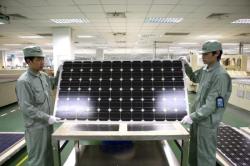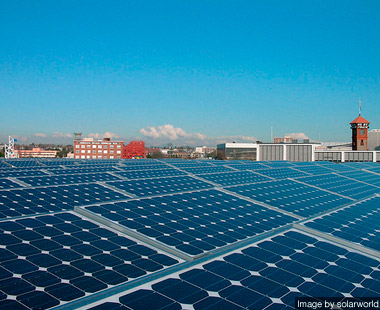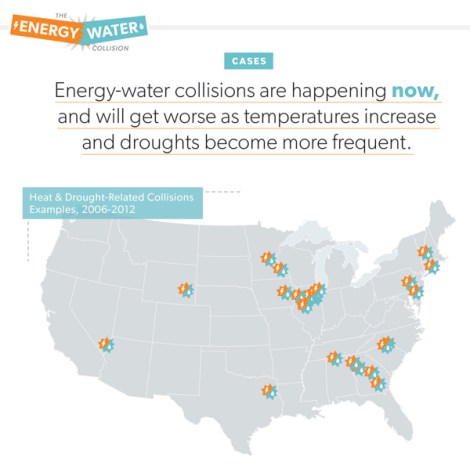
Dudes holding a solar panel.
Georgia Power plans to invest heavily in new energy production. Specifically, up to 210 megawatts of solar by 2017.
From Bloomberg:
[The company], based in Atlanta, submitted plans to regulators to buy 70 megawatts of capacity a year starting in 2015, according to a statement yesterday.
If approved, the Advanced Solar Initiative would be the largest voluntary purchase of solar energy by an investor-owned utility in the U.S., Georgia Power said. Utilities in some other states are required to buy electricity generated from renewable sources. Georgia doesn’t have a state renewable portfolio standard, as such polices are known.
Why the investment? One incentive was provided this summer. The Union of Concerned Scientists (a union of concerned scientists) has long noted the link between warm weather and reduced electricity generation from fossil fuel plants. Data released today notes several instances of power plants operating at reduced output because the warm weather meant warmer water — and less of it. Here’s the UCS’s map of where there have been “collisions” between the need for water and the effort to produce electricity.
Only Illinois has seen more such conflicts than Georgia.
Solar doesn’t require that water, and (obviously) solar thrives in warm, sunny weather. Investing in solar means reducing the points of conflict between production and water raised by heat and drought.
Before Georgia Power moves forward, the Georgia Public Service Commission has to approve the expansion plan. Seems like a no-brainer for the governmental body. I mean, what’re they going to do? Deny there was a drought?




